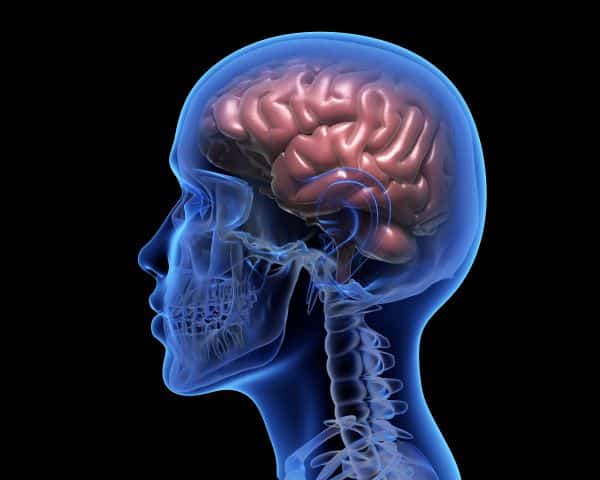Sleep plays a pivotal role in maintaining overall health and well-being, acting as a foundational pillar alongside diet and exercise. Despite its critical importance, the fast-paced modern lifestyle often leads to the neglect of adequate rest. Sleep deprivation has emerged as a silent epidemic, with profound impacts on physical, cognitive, and emotional health. This article delves into the alarming effects of sleep deprivation on the body, revealing how chronic lack of sleep can lead to a cascade of negative health outcomes. Understanding these impacts is essential for fostering a culture that prioritizes rest as much as productivity.
Contents
Cognitive Function Decline

Sleep deprivation significantly impairs cognitive abilities, making it difficult to concentrate, solve problems, and make decisions. The brain requires adequate rest to process and consolidate memories, a process that is disrupted by insufficient sleep. This disruption not only affects short-term memory but also hampers the learning process, making it harder to acquire new information. Studies have shown that individuals who consistently miss out on sleep exhibit a decline in cognitive performance, akin to the effects of alcohol intoxication.
The long-term consequences of sleep deprivation on cognitive health are equally concerning. Persistent lack of sleep has been linked to an increased risk of developing neurodegenerative diseases, such as Alzheimer’s disease. This connection is thought to be due to the accumulation of beta-amyloid, a toxic protein that builds up in the brains of sleep-deprived individuals. Over time, this buildup can interfere with neuronal function and lead to cognitive decline, highlighting the crucial role of sleep in maintaining brain health.
Emotional And Mental Health Impact

The relationship between sleep and emotional well-being is complex and bidirectional. Sleep deprivation can lead to heightened emotional responses and volatility, increasing susceptibility to stress and anxiety. The emotional centers of the brain become more reactive under sleep-deprived conditions, amplifying negative emotions and diminishing the ability to regulate mood. This heightened emotional reactivity can exacerbate feelings of anxiety and depression, creating a cycle that further disrupts sleep patterns.
Moreover, chronic sleep deprivation is a known risk factor for the development of mental health disorders. Individuals who experience consistent poor sleep quality or insomnia are at a higher risk of developing depression, anxiety disorders, and other psychiatric conditions. The mechanism behind this link involves disrupted regulation of neurotransmitters and stress hormones, which play key roles in mood and emotional balance. Addressing sleep issues is often a critical component in the treatment and management of mental health disorders, underscoring the importance of sleep in maintaining emotional and psychological resilience.
Weakened Immune System

Insufficient sleep has a detrimental effect on the immune system, compromising its ability to fend off infections. During sleep, the body produces cytokines, a type of protein that targets infection and inflammation, effectively creating an immune response. Sleep deprivation reduces the production of these protective cytokines, as well as antibodies and cells that fight off infections. Consequently, individuals who do not get enough sleep are more likely to fall ill after being exposed to viruses, such as those that cause the common cold or flu.
Research further substantiates the link between sleep and immune function, indicating that people who sleep less than seven hours a night have almost three times the risk of catching a cold compared to those who sleep eight hours or more. Beyond just colds and flu, chronic sleep deprivation has been associated with a higher susceptibility to more serious health issues, including the risk of infectious diseases. This increased risk is attributed to the compromised state of the immune system, which struggles to mount an adequate defense against pathogens due to lack of rest.
Increased Risk Of Chronic Diseases

Sleep deprivation poses a significant risk for the development of chronic diseases. Lack of sleep has been closely linked with cardiovascular diseases, including hypertension, heart attacks, and stroke. This association is partly due to the effects of sleep on blood pressure and heart rate, as sleep helps to regulate these vital signs. Without adequate rest, the body experiences a state of increased stress, characterized by elevated cortisol levels, which in turn can lead to inflammation and increased blood pressure, exacerbating the risk of heart disease.
Similarly, the risk of type 2 diabetes is heightened by insufficient sleep. The body’s ability to regulate glucose is impaired by lack of sleep, leading to higher blood sugar levels and decreased insulin sensitivity. Over time, these effects can contribute to the development of insulin resistance, a precursor to diabetes. Numerous studies support the finding that individuals averaging less than six hours of sleep per night have a significantly increased risk of type 2 diabetes, underscoring the importance of sleep in metabolic health.
Weight Gain And Obesity

The link between sleep deprivation and obesity is well-documented, with numerous studies indicating that individuals who sleep less are at a higher risk of becoming overweight. Lack of sleep affects the hormones that regulate hunger—ghrelin and leptin. Ghrelin signals hunger to the brain, and its levels increase with less sleep, while leptin, which tells the brain that you are full, decreases. This hormonal imbalance can lead to increased food intake, cravings for high-calorie foods, and ultimately weight gain.
Moreover, sleep deprivation affects the body’s metabolism, slowing down the metabolic rate and decreasing the amount of energy used while at rest. This reduction in metabolic rate, combined with an increased appetite, creates a perfect environment for weight gain. Furthermore, fatigue from lack of sleep can result in decreased physical activity, compounding the problem by burning fewer calories. Therefore, maintaining a healthy sleep schedule is crucial for regulating body weight and preventing obesity.
Impact On Physical Performance

Physical performance and recovery are significantly impaired by inadequate sleep. Athletes who do not get enough rest experience decreases in performance, including reduced endurance, slower reaction times, and diminished coordination. Sleep is critical for recovery from physical exertion, as it is during deep sleep that the body repairs muscle tissue and synthesizes proteins. Without sufficient rest, the body cannot fully recover, increasing the risk of injury and decreasing overall physical capability.
Studies in sports science have shown that extended sleep improves performance metrics among athletes, highlighting the importance of rest in achieving peak athletic performance. Additionally, lack of sleep can affect motivation, making it harder to engage in physical activity. This reduced motivation, combined with the physical impacts of sleep deprivation, can severely hinder both casual exercisers and professional athletes’ abilities to perform at their best.
Deterioration Of Skin Health

The effects of sleep deprivation extend to skin health, often visible through premature aging, reduced skin elasticity, and a dull complexion. Sleep serves as a regenerative period for the skin, allowing for the repair of damage from UV exposure, pollution, and other environmental stressors. Lack of sleep disrupts this process, leading to increased signs of aging, such as wrinkles and fine lines, and slows down the skin’s recovery from environmental damage.
Moreover, poor sleep can lead to increased stress levels, which can exacerbate skin conditions such as acne, eczema, and psoriasis. The stress hormone cortisol, which is elevated in states of sleep deprivation, can increase inflammation and impair the skin’s ability to retain moisture, further damaging the skin’s barrier function and appearance. Ensuring adequate sleep is, therefore, essential for maintaining healthy, resilient skin.
The Bottom Line
The evidence is clear: sleep deprivation has far-reaching effects on the body, from cognitive and emotional impacts to physical health risks including chronic diseases, obesity, and diminished skin health. These findings underscore the importance of sleep as a pillar of health, on par with balanced nutrition and regular exercise. Prioritizing sleep is not just about preventing negative health outcomes; it’s about enhancing quality of life, productivity, and overall well-being. Recognizing the critical role of sleep can inspire a shift towards healthier sleep habits, benefiting both individual health and society at large.


